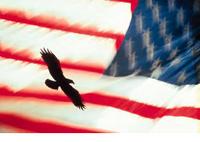
Yesterday in his pastoral prayer, Dr. John Fiedler, Senior Minister at First United Methodist Church here in Dallas, confessed that "freedom is not necessarily a great thing unless it is used to do great things."
The founders of our nation seemed to have understood this truth.
A little more than a decade after signing the Declaration of Independence, the founders went back to work on perfecting a plan for establishing the new nation on a solid constitutional foundation. It was not an accident nor an arbitrary choice of words that led the framers of this sacred national document to begin with the phrase "We the people."
The revolutionary struggle had been about independence and freedom. Freedom for individual colonists and freedom for the various groups and constituencies that populated the American colonies. After winning liberty and struggling with a government ordered by the inadequate Articles of Confederation, the new nation adopted a collective approach that launched the incredible American experiment in freedom and unity.
"We the people" is a phrase we need to remember on this the two hundred and twenty-ninth anniversary of the nation's independence. Freedom is not just about my individual liberty to do as I please.
I am free as a citizen of the United States, just as are all of my fellow citizens.
But, we are members of one American family that has been diverse and amazing from the beginning. We are all in this national experiment and journey together. The nation is an amazing collective of persons, interests, values, perspectives, traditions, assets and needs.
"We the people of the United States, in order to form a more perfect Union, establish Justice, insure domestic Tranquility, provide for the common defence [sic], promote the general Welfare, and secure the Blessings of Liberty to ourselves and our Posterity, do ordain and establish this Constitution for the United States of America."
In the "Preamble" to this original vision we discover exactly what is needed to renew our nation today.
Today millions of our fellow citizens and their children who live in the inner cities of our nation find themselves mired in a devastating, unforgiving poverty. Where is the hope for them on this day of national celebration? How do we find a way through the current situation to a better America for everyone?
I believe the answer is in the minister's prayer and in those first three familiar words of our Constitution, "We the people."
We enjoy freedom. Now what will we do with it as a people?
As a people we must find creative and sustainable ways to guarantee basic American rights to all of our people.
People who work hard in this nation should not have to want for a livable wage, decent housing, accessible health care, adequate and nutritional food, fair and equal treatment under the law or meaningful voice in the affairs of their various communities.
All of our children are entitled to a quality education in our public schools. Those who desire to go on to college should be able to do so with our assistance when it is needed. Those who opt for entering the labor market after high school should be prepared for work that will sustain them and their families. Our fellow citizens who need and desire training to properly fill positions of employment should be able to receive such training.
We the people should see to it that no one is limited, shut out or held back because of race, color, ethnicity, gender, religion, political philosophy, sexual preference or national origin.
The weakest among us--the children, the aged, the sick and the disabled--should be a constant national priority.
If we as a people decided to pursue such a path together, our cities would flourish again with health, hope and opportunity.
But, it's like the preacher prayed. Freedom is only great if it is used to do great things.
2 comments:
Good national vision. Reminds me of the entire "values" debate underway in the country. How do we get to the place where most of us see a commitment to the "least among us" as a valid commitment to the whole just as the values back of this commitment grow out of our national and individual expressions of faith???
A commitment to the least of these among us requires that we work with the poor, that we engage in social change (community organizing)with the poor instead of advocating "for" them or creating programs "for" them.
Systems change not charity is the answer.
Post a Comment